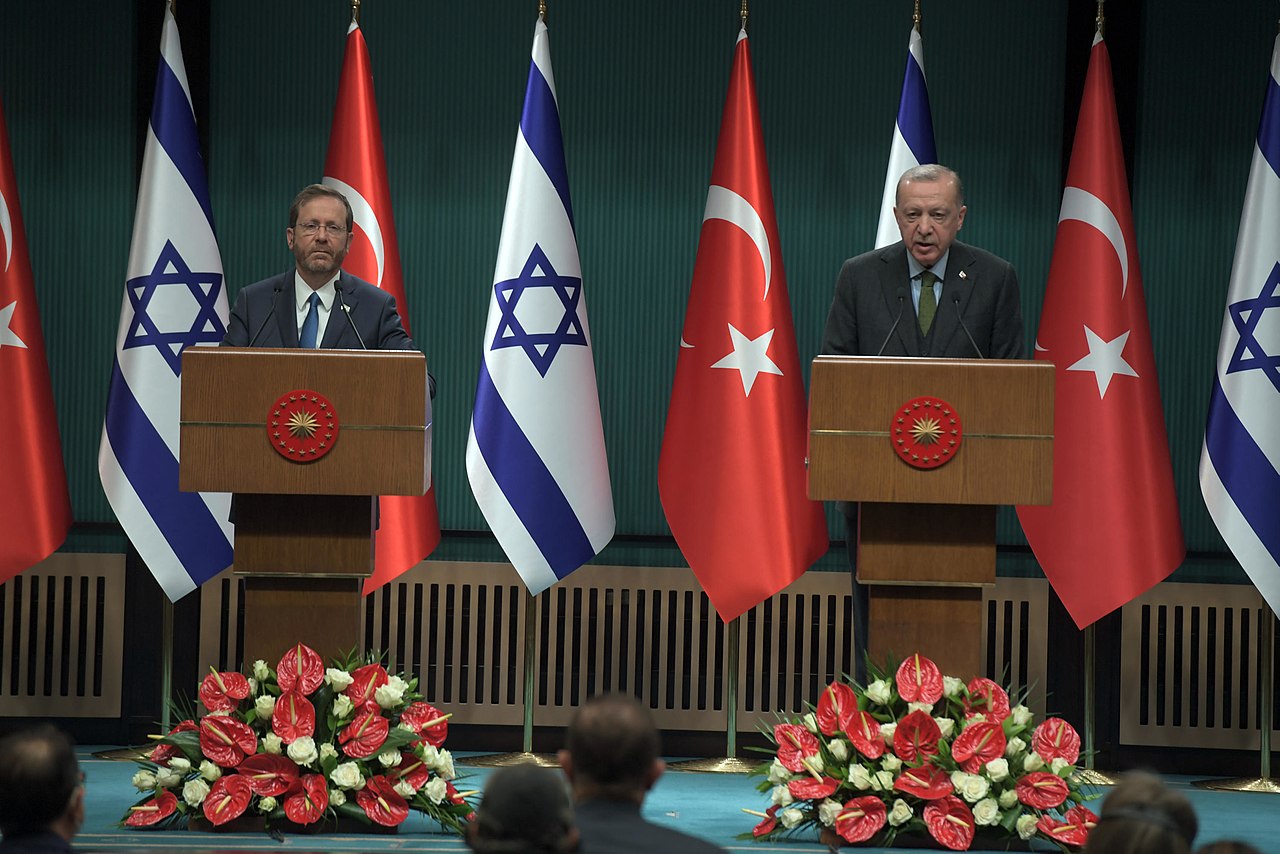This is a summary of the original article by Prof. Dr. Said El-Haj that may be found here
Turkey has a long history of supporting the Palestinian cause, and has traditionally been a strong ally of the Palestinian people. The Turkish government has often used its support for Palestine as a means of rallying support among its domestic constituents, and has taken a leading role in efforts to address the Israeli-Palestinian conflict through diplomatic means. At the same time, Turkey’s support for Palestine has often been a source of tension in its relations with Israel, which has led to strained ties between the two countries.
In recent years, however, there have been signs of a thaw in relations between Turkey and Israel, with both sides expressing a willingness to improve ties. One of the key drivers behind this shift has been the changing regional context, as both countries face common challenges, including the Syrian conflict and the rise of Iran’s influence in the region. In addition, there have been efforts by both sides to engage in dialogue and build confidence, as well as efforts to cooperate on economic and energy projects.
One of the most significant developments in Turkey-Israel relations has been the reopening of the Turkish embassy in Tel Aviv, which had been closed since 2010. This move was seen as a significant step towards the normalization of relations between the two countries. In addition, there have been several high-level visits between the two sides, including a visit by Israeli Prime Minister Benjamin Netanyahu to Turkey in 2016, and a visit by Turkish President Recep Tayyip Erdogan to Israel in 2017.
Despite these positive developments, there are still significant obstacles to a full normalization of relations between Turkey and Israel, including the ongoing Israeli-Palestinian conflict and Turkey’s domestic political dynamics. In particular, Erdogan’s ruling Justice and Development Party (AKP) has often used anti-Israel rhetoric as a means of rallying support, and that this has made it difficult for the Turkish government to pursue closer ties with Israel.
Additionally, Israeli-Palestinian conflict remains a major point of contention between the two sides, and that Turkey has historically been a strong supporter of the Palestinian cause. As such, any efforts to improve relations between Turkey and Israel will likely depend on progress being made towards a resolution of the conflict.
While there have been positive developments in Turkey-Israel relations in recent years, it remains to be seen whether these will be sustained in the long term. The future of relations between the two countries will depend on a range of factors, including the evolving regional context and the ability of both sides to address outstanding issues and build trust.
The views expressed herein may not necessarily reflect the views of JI FAD and/or any of its affiliates






